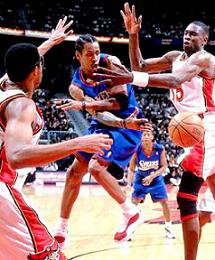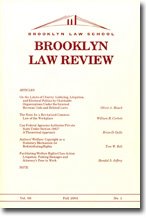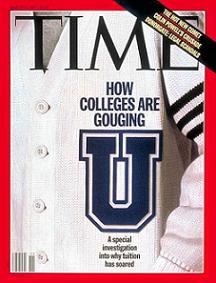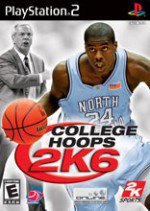- With all due respect to Tennessee's Chris Lofton, Glen "Big Baby" Davis is the SEC Player of the Year. He is a brute force down low, and he showed that with 24 and 10 tonight. As an added bonus, he has a move called the "Wilt Chamberneeze" (courtesy to whoever ESPN's sideline reporter was). Combine all of this with the fact that he has a cool nickname, and he is the SEC Player of the Year.
- I think LSU is susceptible to quick teams that can shoot the 3. In the post, they are extremely tough, but I think they can get beat on the break. South Carolina hit 10 3's tonight, and at least 25% of their total points came on the fast break. I also think LSU can be susceptible to teams that play a zone, because they don't shoot the ball that well from 3-point land. Coming in, they only had 3 people with at least 5 threes on the year, and only one that had at least 20 (Darrel Mitchell with 68). They were 5 of 13 tonight.
- After coming up with that formula to beat them, it dawned on me that they matched up with a team like that last year in the NCAA Tournament, when they fell to UAB 82-68. Maybe this doesn't mean anything, or that I'm still bitter because I picked LSU to the Sweet 16 last year, but I found it interesting.
- Let me add it's very possible that they are twice as good with Tyrus Thomas, who is averaging 12.7 points and 9.3 rebounds per game, but was out with a sprained ankle. All I know is, I don't think the LSU team is capable of making a deep tourney run. They'll probably be a 3 or 4 seed, so I don't see them falling in round 1, but I could definitely foresee a 2nd round loss. But another thing to keep in mind is that LSU is very young, with 7 freshmen. They have a very bright future.
- A final basketball note, props to ESPN Classic, which showed last year Arizona/Oklahoma St. tourney game, which was very good. Arizona won 79-78 on a shot from Salim Stoudemire, and I have to say I enjoyed watching it. Tomorrow afternoon they are showing last year's Louisville/West Virginia Elite Eight game, which was extremely entertaining, but I have to work, which is unfortunate.




